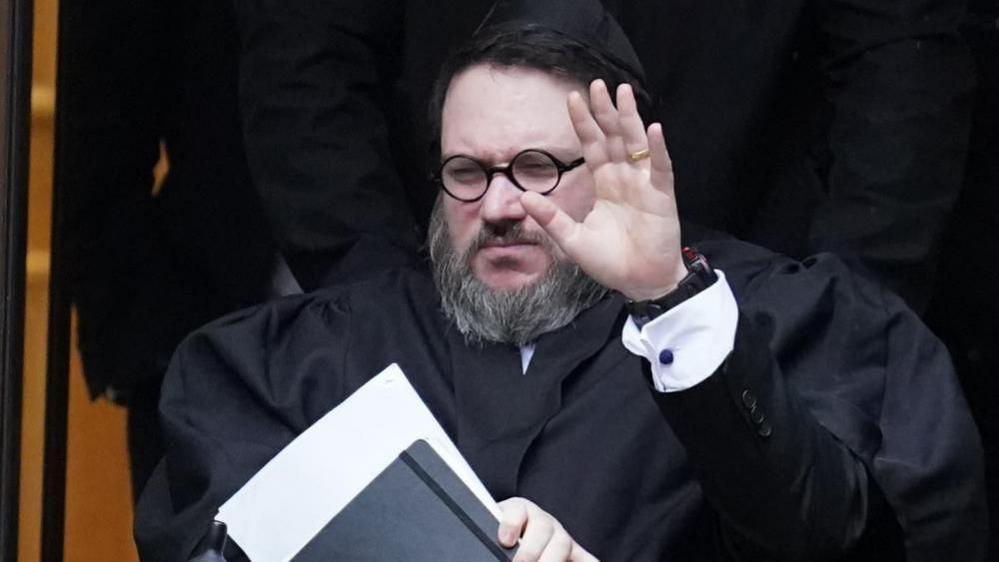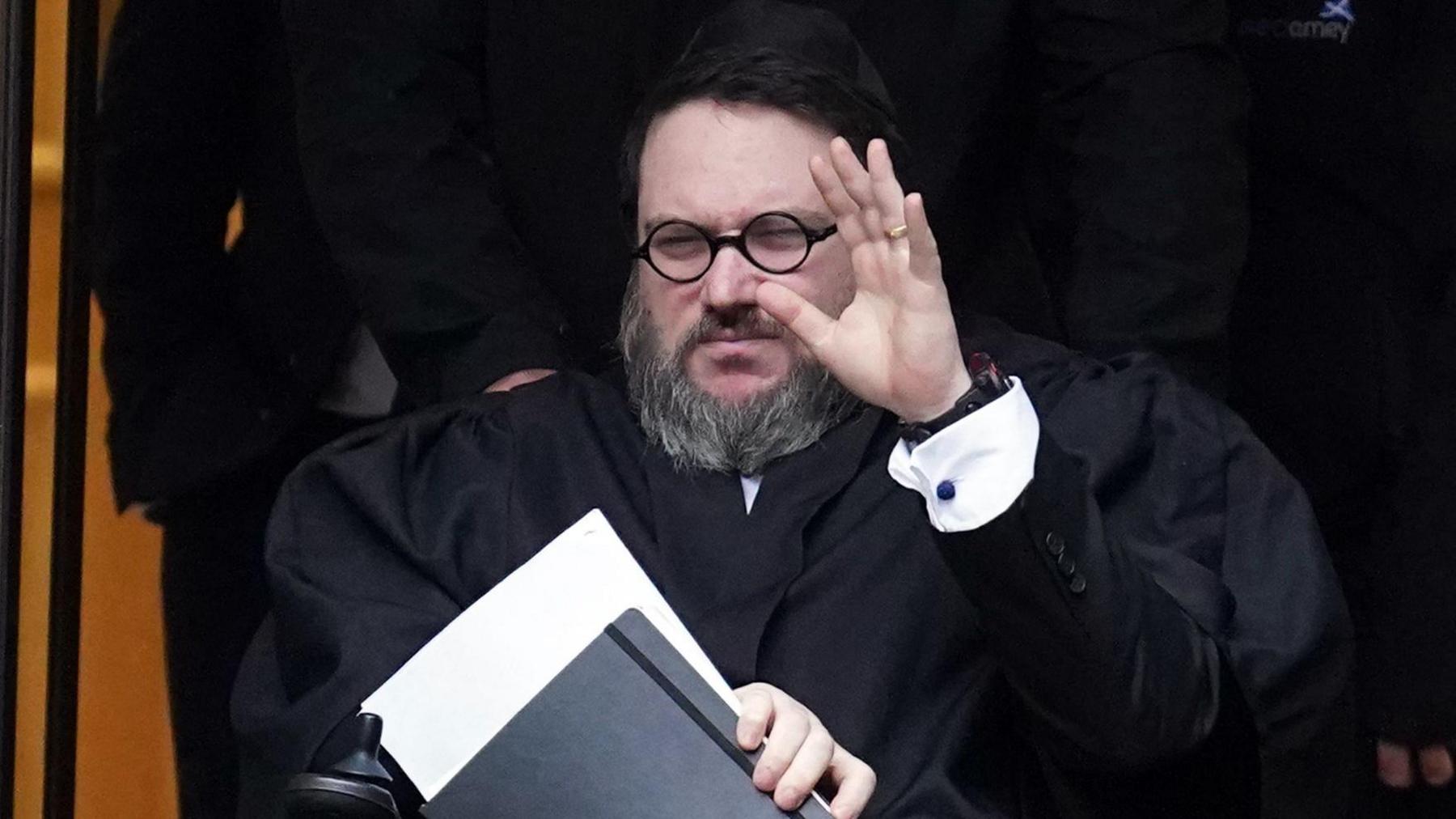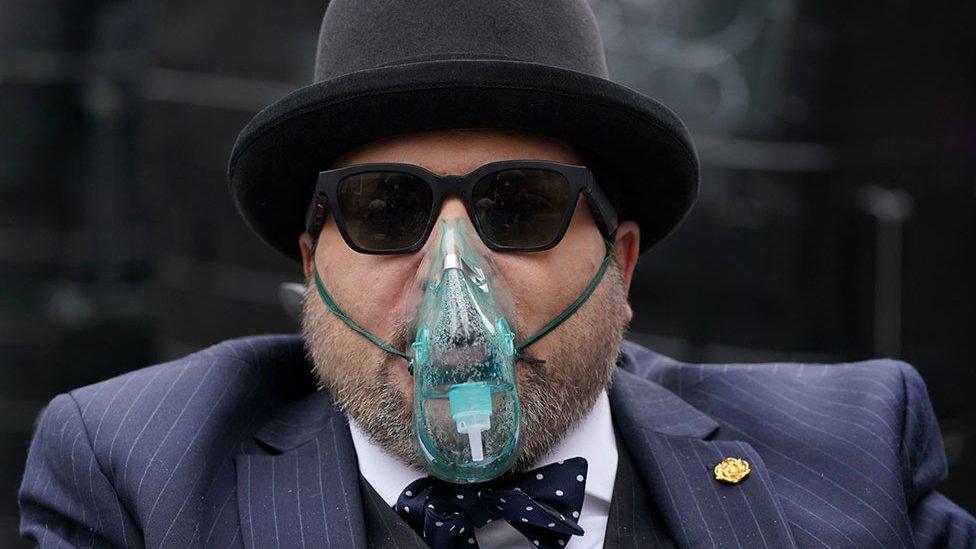US fugitive Nicholas Rossi who fled to Scotland sentenced for rape

Rossi, seen in 2023 after the UK ruled he could be extradited to the US
- Published
A US man who faked his death and fled to Scotland after being accused of rape has been jailed for at least five years.
Nicholas Rossi, 38, of Rhode Island, was convicted in separate trials in August and September of raping two women in Utah in 2008.
Appearing in court in Salt Lake City on Monday, Rossi was sentenced by a judge for the first conviction to a term ranging from five years to life in prison. He is due to be sentenced for the second conviction next month.
Before sentencing, Judge Barry G Lawrence described Rossi as a "serial abuser of women" and said he was the "very definition of a flight risk".
"He fled the country to avoid investigation. He took on an alias and, even in response to this case, refused to admit who he was," the judge said.
An online obituary posted in February 2020 said Rossi, who was born Nicholas Alahverdian, had died from non-Hodgkin lymphoma.
He then came to wider attention in December 2021 when he was arrested on the Covid ward of a Glasgow hospital. Staff recognised his mugshot and distinctive tattoos from an Interpol wanted notice.
Rossi claimed that his name was Arthur Knight - an Irish-born orphan who had never been to the US.
He made a series of bizarre court appearances in Scotland - in a wheelchair, wearing a three-piece suit and an oxygen mask, maintaining his claim of mistaken identity.
He was extradited to the US in January 2024 and put on trial in Utah for two separate charges of rape.
The saga from Glasgow to Salt Lake City was documented in the BBC's Strange But True Crime podcast.
WATCH: The story of Nicholas Rossi, the US fugitive who ‘faked his own death’
Unmasking A Fugitive
The story of Nicholas Rossi, the US fugitive who came to the UK with a new identity after faking his own death.
Utah has an indeterminate sentencing, meaning it is given in a range of years rather than a fixed number. The judge said it was up to the state's board of pardons and parole to determine how long he should be jailed.
Shortly before sentencing, one victim said Rossi had left a "trail of fear, pain and destruction" behind him.
"This is not a plea for vengeance. This is a plea for safety and accountability, for recognition of the damage that will never fully heal," she said.
Rossi maintained his debunked claims of mistaken identity - which have been disproved by DNA and matching tattoos - during his court appearance on Monday.
"I am not guilty of this," he told the court before being sentenced. "These women are lying, and in due course, we will lodge an appeal."
- Published25 September

- Published2 August 2023
